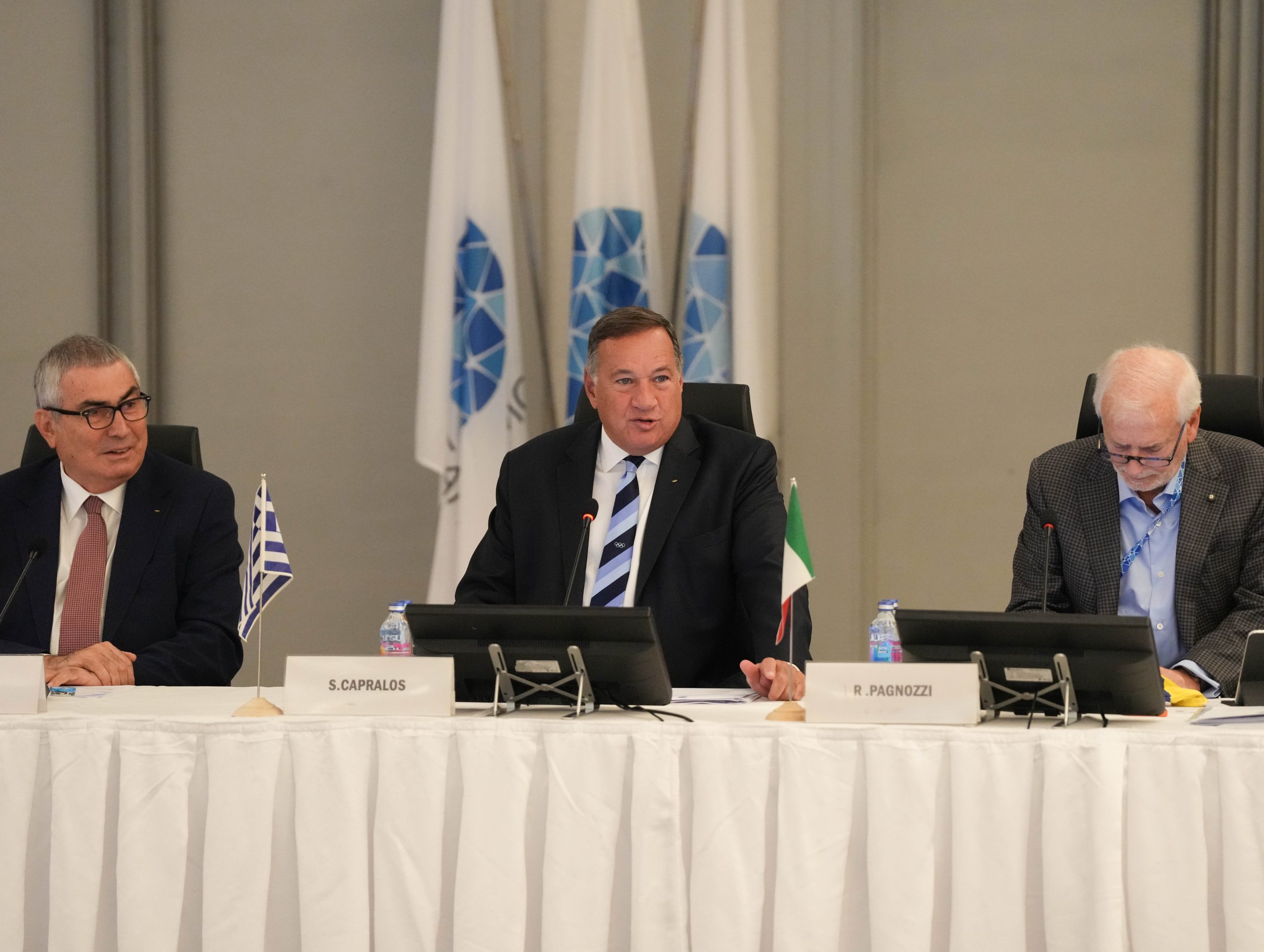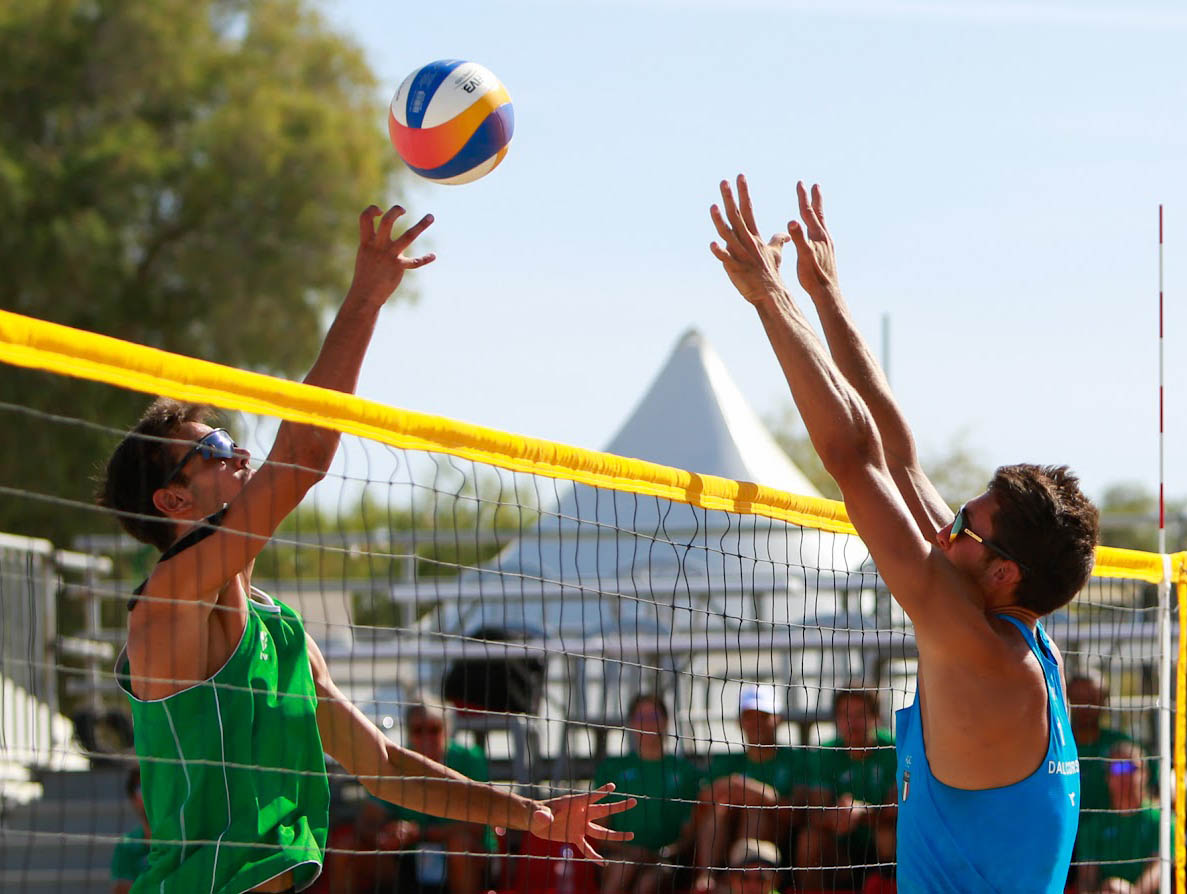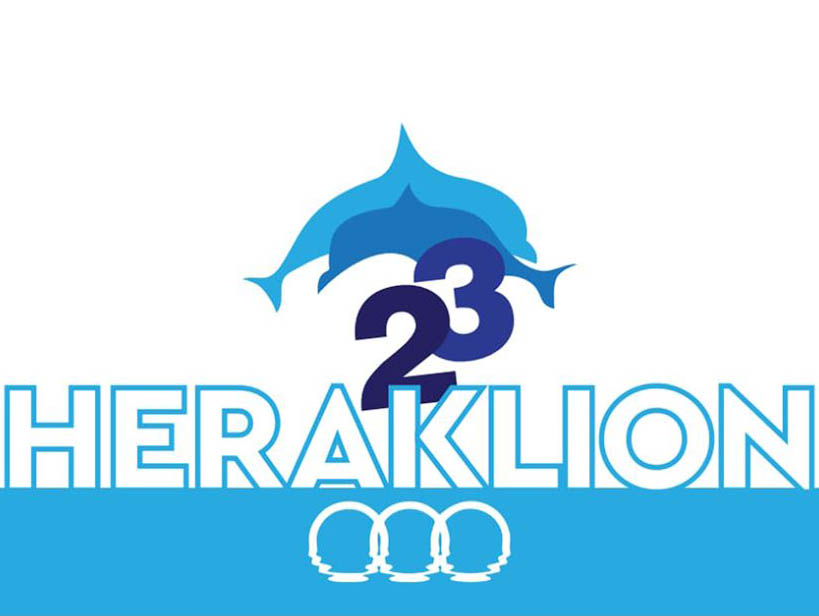1. Informal meeting of sports ministers
Sports ministers of the EU and future member states held their informal meeting in Florence on the 2 and 3 of October. The following items were on the agenda: sport and its educational value, the fight against drug-taking, co-operation with developing countries in the field of sport, the enlargement of the union and sport in the forthcoming European constitution.
IOC President, Jacques Rogge, again made a plea for ministers to complete the draft convention relating to sports organisations, in particular with regard to the essential items from the Nizza declaration.
Ministers agreed to continue their existing co-operation in the field of the development of European sport, including its educational value, and to support the European year of education through sport.
The European Union is to be represented in WADA by the TROIKA minister [present, past and future council presidency]. After the anti-doping code for sports organisations, the UNESCO initiative to get a worldwide convention against doping underway, which could then be binding on governments, was unanimously welcomed and ought to be supported. In view of the varied national legislation for combating doping and especially the various sanctions available, ministers commissioned the Italian presidency to set up a consultancy and co-ordination procedure to examine harmonisation measures.
No agreement was reached with regard to adapting the article relating to sport in the proposed constitution. Although the majority of ministers present came out in favour of an amendment of the article with reference to the Nizza declaration, Denmark, Ireland and Finland wanted to leave the existing draft unchanged.
2. New directive on bathing water
The European Parliament passed the first reading of the proposal to reform the directive on the quality of bathing water. As part of the joint decision-making procedure, the proposal now goes before the Council of Ministers. There, environment ministers will decide on the draft bill. If the Council agrees with the suggestions from the Parliament, it will adopt a joint position, otherwise there will be a second reading in Parliament, or even the conciliation committee may be called in. The latter is to be expected, since the Council took a different view from Parliament with regard to the sports-related issue of the inclusion of water sports in the directive.
Parliament was in favour of the proposals suggestion that the criteria for water quality should be extended to cover stretches of water used for various types of water sports. Water sports enthusiasts now fear that stretches of water that fail to meet the very strict criteria for swimming could be closed to sportsmen and women, or else the costly test procedures might not be carried out in all places. The French and German water sports committees sent relevant comments on this possible conflict to the decision-makers.
The adoption of the directive is not expected until the next legislative period, after the European Parliament elections in June 2004.
3. Broadcasting rights for the English Premier League
Competition commissioner, Mario Monti, announced at the beginning of October that if necessary proceedings would be taken against the English Premier League marketing regulation.
The live broadcasting rights had been awarded entirely to the commercial channel BskyB, after it had made the highest offer in the bidding for all four live packages. In the next three seasons the channel will pay over £1.2 billion for the broadcasting rights. Mario Monti meanwhile sees disadvantages in the deal in terms of competition in the selling of broadcasting rights, and for consumers. He is afraid that the channels monopoly of live broadcasting rights could increase further. Form the outset BskyB has exclusive rights to the broadcasting of Premier League matches. The present contract allows for the live broadcasting of 138 matches on Saturdays, Sundays and Mondays.
The Commission will send a reasoned opinion to the Premier League, which will then have two months to respond.
In December 2002 the English Football Association Premier League had already received a reasoned opinion, on the marketing of rights from the European Commission. At that time the reason was the lack of selling rights for clubs that could not market their own games, even when these did not form part of the larger packages. As a consequence, only a quarter of matches could be broadcast live. Moreover, in the Commissions opinion, the development of new media in the awarding of rights was not sufficiently taken into consideration.
4. EU supports Y-SPORD
The Austrian national YOUTH agency approved the application of the Austrian disabled sports association [ÖBSV] to run a contact seminar for young speakers from European disabled sports organisations from 12 to 16 January 2004. The Commission subsidises travel, accommodation and activity costs.
The Y-SPORD contact seminar, short for Youth Sport Relay for People with Disabilities, aims to build up a strong network among participants and to make an application for a youth meeting in the context of the YOUTH support programme for 2004.
The EU office supported Y-SPORD in this idea and assisted with the application procedure.
Further information on this project www.y-spord.eu.tc
5. European symposium on Olympic Education Programme
On 16/17 October in Athens a symposium on Olympic education was held on the initiative of the organising committee for the 2004 Games [ATHOC] and with the support of the European Commission.
ATHOC and the Greek Ministry of Education presented their Olympic education programme, which can be used in all European school systems. The teaching material is already being implemented in over 85% of Greek schools and should continue to convey Olympic values after the Olympic Games are over.
As part of the symposium, the pilot project Sport, School and Olympic Values successfully conducted by the European Commission and the International Olympic Committee in the 2001/2002 school year, was also presented.
Thereafter the president of the Athens 2004 organisation committee, the EU Commissioner for Education and Culture and the Greek Minister for Education and Sport signed the Athens declaration. In this they pay tribute to what has been achieved to date for sport at European level, such as the Nizza declaration and the proclamation of 2004 as the European Year of Education through Sport, and point to the important role played by sport in informal education. They reiterate their desire to further develop co-operation among education institutions and sports organisations and to incorporate Olympic training into formal lessons as a means of expressing democracy, tolerance and active citizenship.
http://www.athens2004.com/Page/default.asp?la=2&pl=425&id=24&pk=1280&ap=225

















